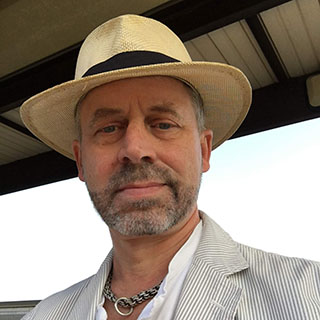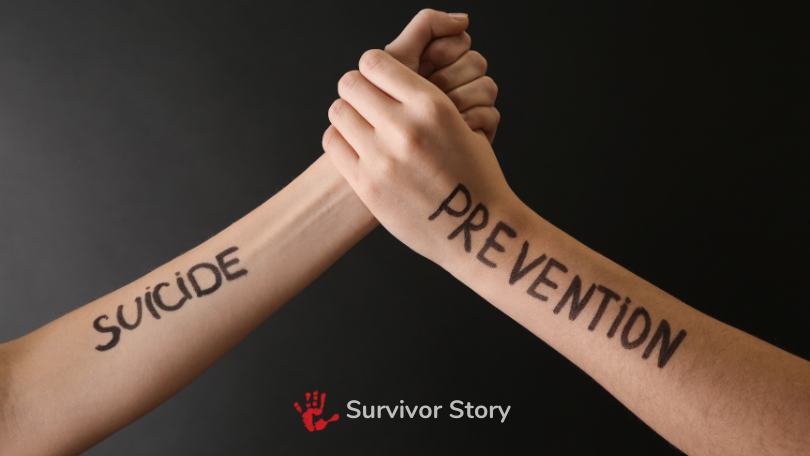Trigger warning: This story discusses suicide, suicide prevention, and mental health. This first-person account may be triggering.
“There is a higher rate of successful suicides in New York City,” she said.
“Jumpers,” she went on to explain. There is no reverse gear.
I am standing high above New York City harbor, looking at the Statue of Liberty and the lights of New Jersey. I am terrified of heights, but not now. Now I am in control.
To be Shakesperean, to jump or not to jump, that was the question.
Three months earlier, it was pills. Hundreds of them. They’ll just pump your stomach out, he said. He was right.
This was different. Every night now for several nights. Balancing on the ledge outside the railing. In control. Feeling so calm. So in control.
Nobody would miss me. If they did, it would be on my terms. In control.
I called again, just like the last night. It was a different person, but I knew his voice from before.
I always said, “I’m calling to say goodbye.”
Now someone would know. But no one would care.
Except for this Samaritan, he cared.
Last night’s Samaritan cared, too.
I stood here almost every night.
They cared, but could not help.
I knew I needed help. I didn’t know where to get it.
After a suicide attempt, a psychiatrist needs to be on the team, and they are in short supply.
They all took my name and number.
Most called back.
None could help.
They all wished they could.
I had no control. Nobody could help. Nobody cared. So, every night I went back to the roof.
Balancing my life and my mental health but in control.
The Samaritans kept talking to me, night by night.
Then, I found the Crime Victims Treatment Center. They cared, and they had a psychiatrist.
Twelve years later, and there is an acute shortage of psychiatrists, it is still challenging to get mental health treatment. Often, the only route involves a psychiatric emergency room—an important place, but not a fun getaway.
Suicide rates are rising. We need to address the mental health crisis through treatment and prevention as a nation. As long as two-thirds of us complete our childhoods with Adverse Childhood Experiences (ACEs), we will continue to have a growing need and cost for treatment. I have an ACE score of five. Over 20% of America does.
We do far too little to prevent ACEs. In a country with one of the world’s highest GDPs, two-thirds of children end their childhoods so traumatized that we have doubled their chance of becoming an alcoholic. Those survivors form a substantial part of America’s suicide problem.
Perhaps we should start with the low-hanging fruit? Start by preventing the harm caused to children by ACEs by providing home visiting services to mothers who need help. For many of us, childhood may be a lesson in how not to parent. Helping good people become good parents is what home visiting programs do. You can read more about them here, and please sign a petition to support their funding here.
According to the landmark CDC/Kaiser Permanente study on Adverse Childhood Experiences (ACEs), witnessing violence in the home can cause lifelong trauma for children. Learn more about the effects on children of witnessing the abuse of a parent here. You can help make sure this never happens to another child. Learn how by subscribing to our newsletter and supporting our work. Read about the ten categories of ACEs by following our blog. Do you know your ACE score? Take the ACE test here.
If you or someone you know is struggling with the long-term effects of ACEs, we encourage you to talk about it with your primary care physician so you can be connected to the mental and physical healing options that are right for you. You can also reach out to one of these national hotlines:
Childhelp National Child Abuse Hotline
(800) 422-4453
National Suicide Prevention Lifeline
(800) 273-8255
National Suicide Prevention Lifeline (Options for Deaf and Hard of Hearing)
For TTY Users: Use your preferred relay service or dial 711 then 1-800-273-8255
Substance Abuse and Mental Health Services Administration National Helpline
(800) 662-4357
In New York City, you can reach the Samaritans Confidential Hotline when you need someone to talk to 24/7.
Do you know your score?
Discover your ACE score and unlock a new understanding of your life. Take the test and gain insights into how your early experiences shape your well-being. Don't let your past define you – empower yourself with knowledge.

Andrew Willis
Founder
Andrew was a Captain in the British Army before practicing integrated marketing communications and marketing, mostly for global brands. A survivor of child sexual abuse, domestic violence, and suicide, Andrew dedicated the second half of his life to protecting children from trauma.
